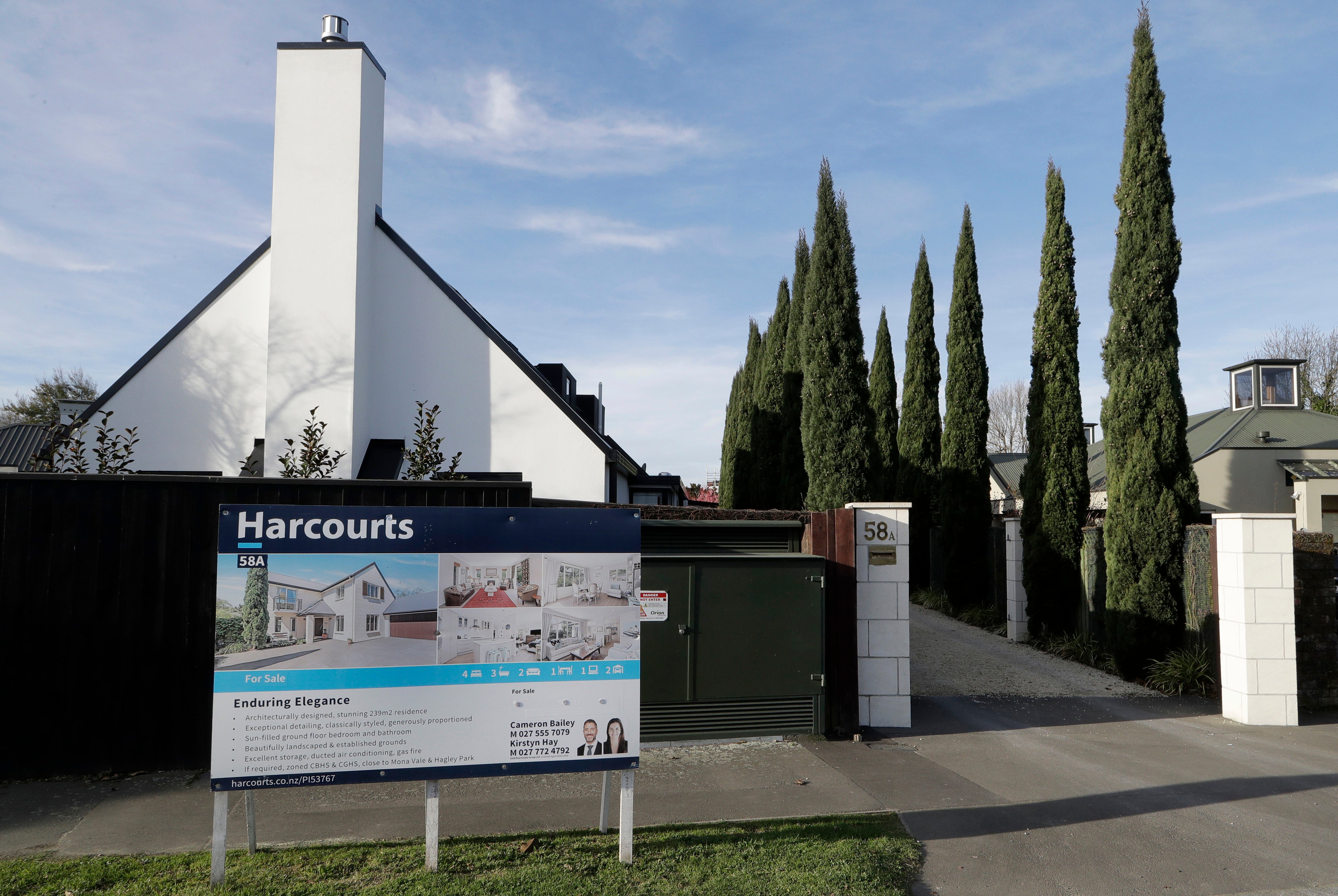New Zealand's virus success unleashes runaway housing prices
New Zealand’s success in battling the coronavirus has unleashed an unanticipated problem: skyrocketing house prices

New Zealand's success in battling the coronavirus has unleashed an unanticipated problem: skyrocketing house prices
When the pandemic first hit, most experts predicted house prices would fall. Instead, prices have risen by more than 19% over the past year, putting them out of reach for many people wanting to buy their first home.
The government, which has come under increasing criticism for its response to the housing squeeze, on Thursday announced the first of what it says will be a series of moves to address the issue by ordering the nation's central bank to consider the impact on house prices when making decisions.
Reserve Bank Governor Adrian Orr said it welcomed the new directive, which is “in tune” with its own advice to the government. The central bank has also recently announced its own moves to restrict lending to housing investors.
But some observers say the moves announced so far will have little impact on upward price momentum, which is being driven by undersupply and record low interest rates.
“It's very pleasing to see movement in the right direction,” said Shamubeel Eaqub, an economist with Sense Partners who has written extensively about New Zealand's housing problems. But, he added, he expects house prices to “keep going up at a great rate of knots” without further strong intervention.
Eaqub said that over the past 30 years, New Zealand hasn't built enough homes, especially rental units. And he said politicians find themselves in a paradox — they want prices to keep rising for those who own homes, and to fall for those who don't.
New Zealand has managed to stamp out community spread of the virus, allowing most aspects of life to return to normal, and its economy has rebounded strongly as a result. GDP grew by a record 14% in the December quarter, erasing most of the virus-induced contraction from earlier last year. Unemployment remains at a relatively low 4.9%.
The nation's sovereign credit rating was this week raised by Standard & Poors, making it the first developed nation to get such a vote of confidence since the pandemic began.
But that success has helped fuel the housing market.
The median price of a home in January jumped to 730,000 New Zealand dollars ($544,000), a 19.3% increase from a year earlier, according to the latest figures from the Real Estate Institute of New Zealand. In Auckland, the biggest city, the median price hit an eye-watering NZ$1 million.
Those prices are high under almost any comparison with other developed nations, especially considering most New Zealand homes do not come with double glazing, central heating or other features considered standard in much of North America and Europe.
Finance Minister Grant Robertson said those kind of rises can't continue.
“We’ve been very clear that what happened in the last three months of last year is not sustainable," he said. “And that's why we need to change the settings."
Bookmark popover
Removed from bookmarks